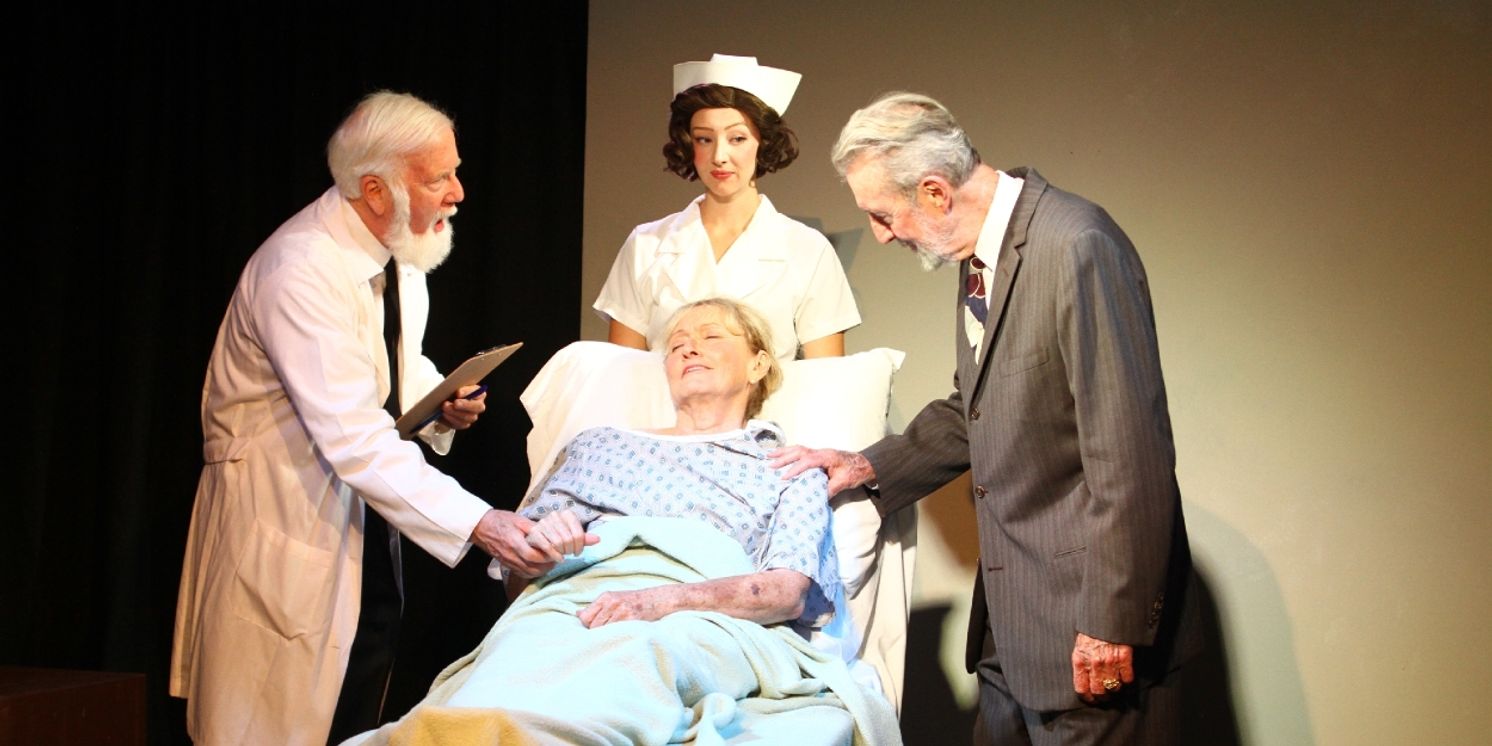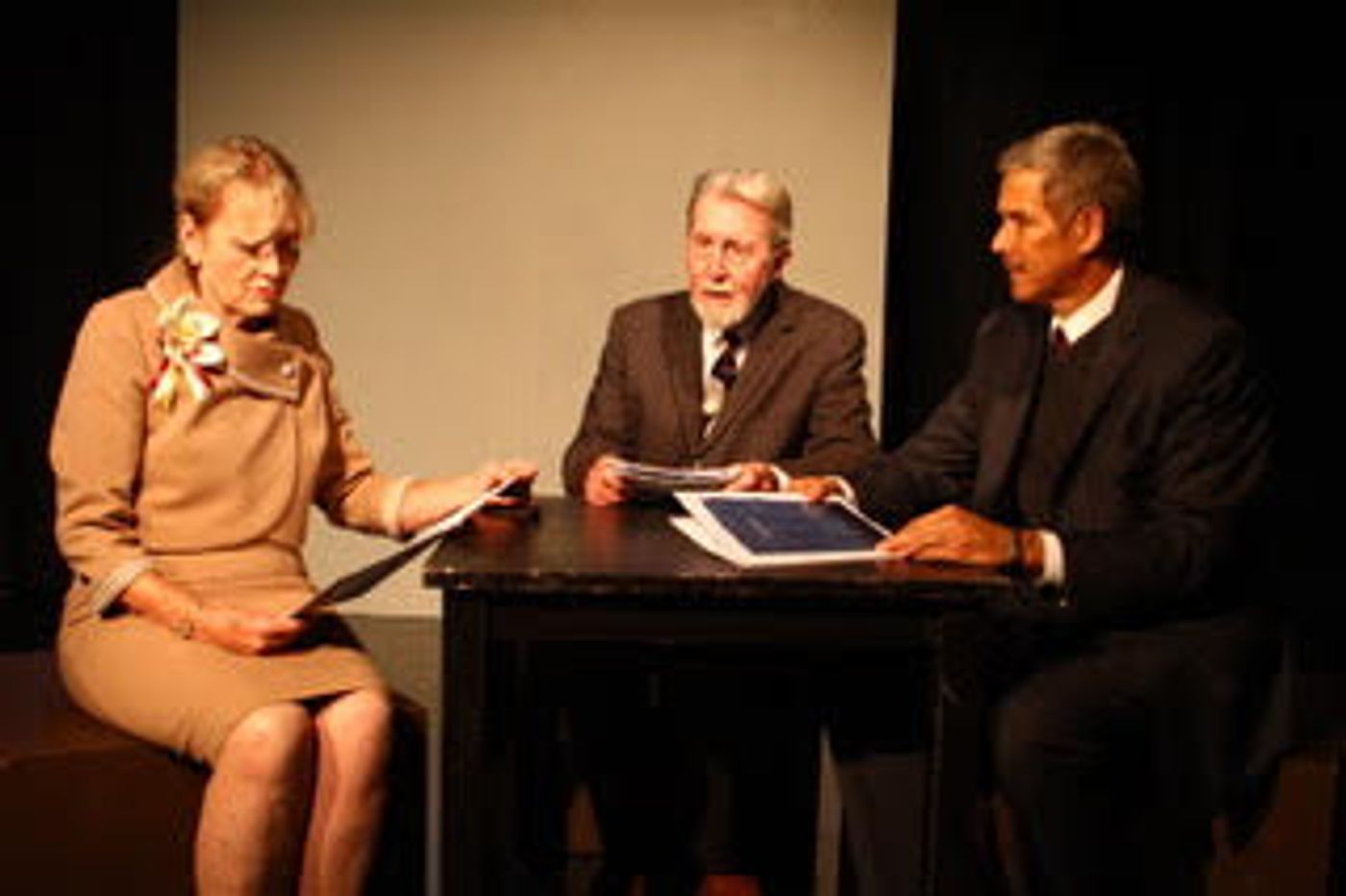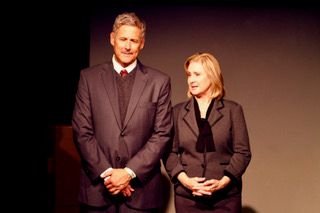Review: I NEVER SANG FOR MY FATHER at Two Roads Theatre
Director Doug Kaback uses a gentle hand with the material to yield enormous power

I NEVER SANG FOR MY FATHER is a moving meditation on aging, elder care, and the responsibility a grown child feels to both his parents and his own life. The hushed show set in 1965 Westchester, New York, aches with loneliness, regret, and melancholy as widower Gene (Shayne Anderson) struggles to marry his affection for his mother, Margaret (a congenial and relatable Becky Bonar), and his exasperated resentment toward his self-involved, prickly father, Tom (Dana Kelly Jr.). His sister, Alice (Mary Carrig), was banished years before for marrying a Jew, so Gene is essentially on his own as he works to come to peace with his past, his present, and his future.
Director Doug Kaback uses a gentle hand with the material to yield enormous power. He doesn't allow his actors to overemote, helping them to find feeling in the words and the spaces between those words. Nothing is rushed and that allows audience members time to sit with the discomfort and weigh their own thoughts on their parents, their children, their lives. Aging affects the whole family. How to reconcile regrets and ghosts and choices made and roads not taken?

The text by playwright Robert Anderson, known as the "dramatist of loneliness," is complex with layered writing and characterizations. Likely best known for his play "Tea and Sympathy" and for his Oscar-nominated adaptations of The Nun's Story and this play, I NEVER SANG FOR MY FATHER has an autobiographical sense to it. While it was originally a disappointment on Broadway, it found better success as a film, garnering three Academy Award nominations (Best Actor, Best Supporting Actor, and Best Adapted Screenplay).
The entire ensemble of six actors is fantastic with Kelly and Carrig being particular standouts. Kelly's Tom is headstrong, pompous, and loves to hear himself talk, always singing his own praises as he relives (over and over) his glory days. He is a knotty and magnetic character and Kelly makes him both believable, infuriating, and sometimes even sympathetic. Carrig comes in in the second act and displays a quiet fury as she attempts to convince passive Gene that he has to choose his own life over devoting it to their parents. Having been censured decades ago, she doesn't feel the same obligation to their father that Gene does, allowing her a freedom he envies but is too acquiescence to seize for himself.

The costumes by Michael Mullen are beautifully tailored and the choice to use the sparest amount of music is canny, allowing the emotions from both the characters and those generated within the audience to fill the space. The 60-seat black box theater in Studio City lends intimacy to the already intimate two-hour drama, but beware: the air conditioning is set on icy. Also, there is no bathroom at the Two Roads. You need to go down the block to a coffee shop. But those are minor inconveniences considering how sensitively crafted this introspective drama is. It isn't easy to watch, but it can be cathartic.
Photos by David List
I NEVER SANG FOR MY FATHER is performed at Two Roads Theater, 4348 Tujunga Ave., Studio City, through October 23. Tickets can be purchased at brownpapertickets.com/event/4525327.
Reader Reviews
Videos

